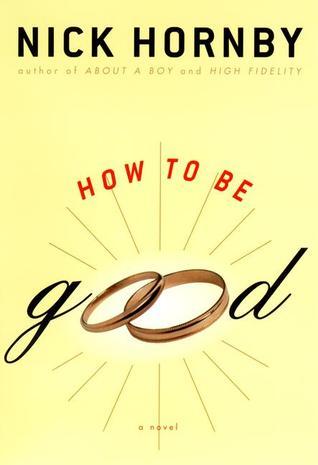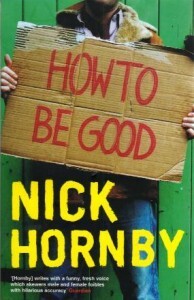What do you think?
Rate this book


Hornby means us to take his title literally: How can we be good, and what does that mean? However, quite apart from demanding that his readers scrub their souls with the nearest available Brillo pad, he also mesmerizes us with that cocktail of wit and compassion that has become his trademark. The result is a multifaceted jewel of a book: a hilarious romp, a painstaking dissection of middle-class mores, and a powerfully sympathetic portrait of a marriage in its death throes. It's hard to know whether to laugh or cry as we watch David forcing his kids to give away their computers, drawing up schemes for the mass redistribution of wealth, and inviting his wife's most desolate patients round for a Sunday roast. But that's because How to Be Good manages to be both brutally truthful and full of hope. It won't outsell the Bible, but it's a lot funnier. --Matthew Baylis
About the Author
Nick Hornby was born in 1957, and is the author of three previous books, FEVER PITCH, HIGH FIDELITY and ABOUT A BOY, all international bestsellers and all available in Penguin. He has also edited two anthologies, SPEAKING WITH THE ANGEL and MY FAVOURITE YEAR. He is the pop music critic for the New Yorker, and in 1999 was awarded the E.M.Forster award by the American Academy of Arts and Letters. He lives and works in Highbury, North London.
305 pages, Hardcover
First published May 31, 2001





"How to be Good" isn't exactly a cheery book yet, is it, and frankly those in attendance were wondering if the notes on the cover ("Hilarious", "Such a zip to read", and "Breezily hilarious") were about this book or another. However, it also offered up quite a bit of fodder for discussion. For starters, we were very interested that it's a male author and this is from the female point of view, especially because of our knowledge of "High Fidelity" and "About a Boy". It's also interesting given the question she asks her son "do you think of me as the mummy or the daddy", and her perspective on being the primary breadwinner.
None of us got "GoodNews", or his place, nor his healing powers. We also discussed giving to charity, and her views about her position as a doctor.
I can describe myself as the kind of person who doesn't forget names, for example, because I have remembered names thousands of times and forgotten them only once or twice. But for the majority of people, marriage-ending conversations happen only once, if at all. If you choose to conduct yours on a mobile phone, in a Leeds car park, then you cannot really claim that it is unrepresentative, in the same way that Lee Harvey Oswald couldn't really claim that shooting presidents wasn't like him at all. Sometimes we have to be judged by our one-offs. (emphasis mine)
And the other thing I think is that I have failed my daughter. Eight years old, and she's sad ... I didn't want that. When she was born I was certain I could prevent it, and I have been unable to, and even though I see that the task I set myself was unrealistic and unachievable, it doesn't make any difference: I have still participated in the creation of yet another confused and fearful human being.